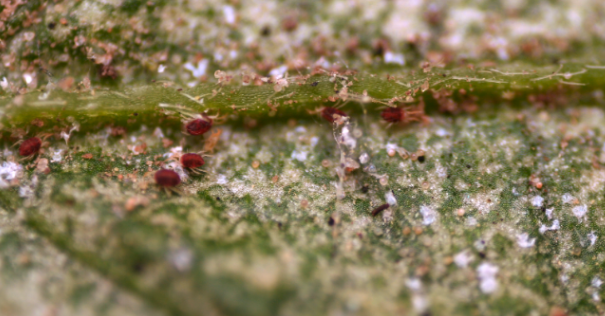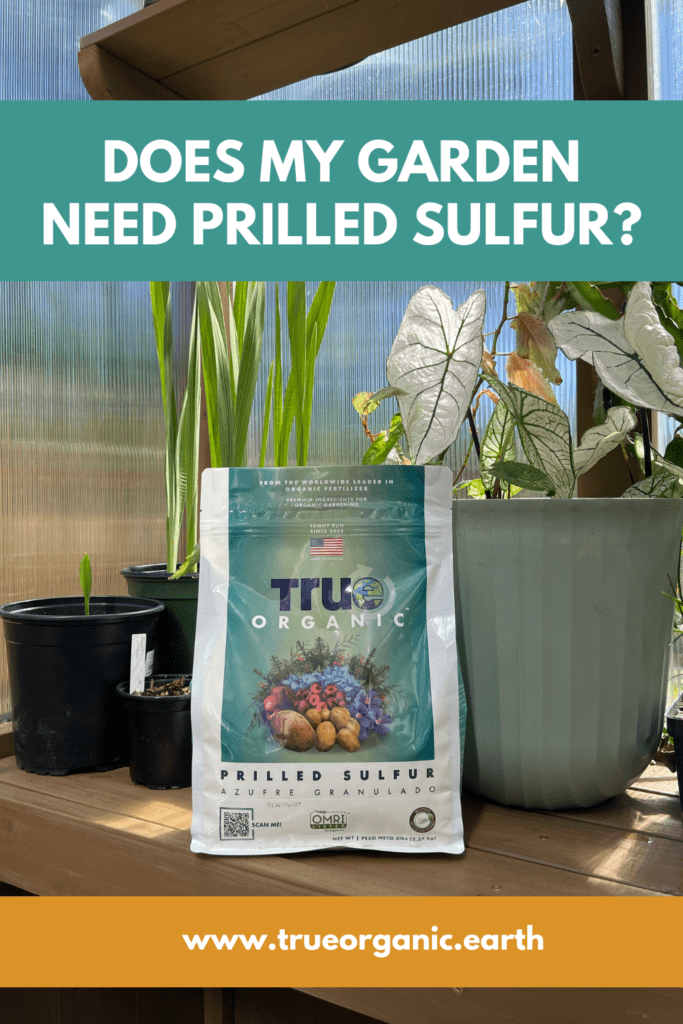July 10, 2023
Does Your Garden Need Prilled Sulfur?
Does Your Garden Need Prilled Sulfur?
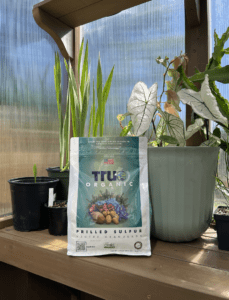
Prilled Sulfur may be your new best friend.
Single-ingredient granular plant foods are an extraordinary way to boost your unique garden’s abundance and to get more familiar with the nitty gritty of soil and plant health. Ready to level-up your gardening prowess?
Our organic single-ingredient foods like Bone Meal, Blood Meal, Seabird Guano, and — our focus today — True Organic Prilled Sulfur.
What is Prilled Sulfur?
Prilled Sulfur delivers necessary sulfates to plants. Sulfur “prills” are small, dry pellets of elemental sulfur that can be easily added to garden soil, whether you’re growing in-ground, in beds, or in containers. Once added to your garden, the sulfur will break down into the sulfate form so that the plants can readily take up the nutrient.
Just like every single True Organic product, our Prilled Sulfur was carefully developed by our team of experts with decades of experience creating and testing fertilizers for large-scale organic agriculture. That means you’re using the very best organic plant food you can get your hands on!
And just like everything else that comes from our food safety-certified plant in Central California, our Prilled Sulfur is totally organic, food safe, and never contains any fillers.
What does Prilled Sulfur do for my garden?
Sulfur is essential for plants, and some need more of it than others (keep reading to find out what plants can most use the support of Prilled Sulfur).
True Organic Prilled Sulfur helps plants in four notable ways:
1) Supplies essential sulfur, in the form of sulfates, to plants
2) Lowers soil pH (makes soil more acidic)
3) Increases micronutrient availability
4) Protects against some diseases and pests.
Lowering soil pH
There are all sorts of reasons the soil in your garden might have a high pH (meaning that it’s alkaline or basic, not acidic), typically because of the natural presence of excess sodium, calcium, and/or magnesium in soil. The pH (and everything else about your soil) is influenced by your geographic location, what kind of activity has occurred in your area (like heavy industry), weather, and so many other factors.
Pest & Disease Protection
Sulfur keeps on giving! Along with helping your garden take in nutrients and grow abundantly, it can protect your garden against pests and diseases — because sulfur is a natural fungicide! It can also repel certain pests like spider mites.
Curious about other single-ingredient plant foods? Learn about the benefits of Bone Meal and Seabird Guano.
Strong Fruiting & Flowering
Prilled Sulfur helps to increase the availability of nutrients in the soil, making it easier for your plants to absorb the nutrients they need to grow and thrive. That means you can look forward to verdant overall growth and beautiful flowering and fruiting.
What’s the deal with soil pH?
Any substance can be measured for pH. Understanding soil pH is an essential part of upleveling your garden game.
Acidity is measured on a pH scale from 1 to 14. 7 is considered neutral pH. Anything below that is considered acidic, and anything above 7 is alkaline (also called basic). Most garden plants thrive at relatively neutral pH: between 6 and 7.5.
But some, like berries and many flowering perennials, thrive in more acidic soil. Read on to learn which ones!
Pro tip: Isn’t there a way to lower soil pH faster? It’s true that sulfuric acid can immediately reduce soil pH, but we highly discourage using sulfuric acid in your garden as it carries some major health hazards.
What kind of plants thrive in low pH soil?
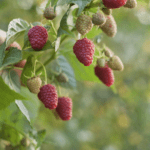
- Vegetables like potatoes, sweet corn, cucumbers, beans, broccoli, turnips, squash, onions
- Berries like blackberries, blueberries, huckleberries and raspberries
- Most fruit trees like fig, cherry, peaches, and apple trees.
- Trees and shrubs like dogwood, beech, holly, oak, dogwood, and evergreens
- Flowers like gardenias, zinnias, azaleas, rhododendrons, hydrangeas, camellias, and daffodils.
Did you know that True Organic makes granular plant food blends specifically for many of the fruiting and flowering crops in your garden? Check out our blends that are tailored to your plants’ needs, like True Organic Berry Food.
How can I tell if my garden needs sulfur?
If you’re growing acid-loving plants, Prilled Sulfur is a sure-fire boost for your garden.
But what about using Prilled Sulfur on soil that just needs a balance due to alkalinity? Besides doing a soil test, you can look for a few signs that your plants are suffering from sulfur deficiency, including yellowing on new leaves (yellowing more mature leaves can mean nitrogen deficiency), stunted growth, poor yield. These symptoms can be the results of other sorts of soil issues, too. So it’s best to test your soil if you suspect sulfur deficiency.
Learn about soil testing for your best garden ever.
How to use Prilled Sulfur in your garden
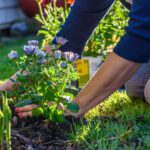
It’s best to add Prilled Sulfur to your garden two weeks before you plant.
Will plants get damaged if you plant them less than two weeks after you’ve added Prilled Sulfur to your soil? Probably not. But it takes some time for soil pH to change as microbes work to break down elemental sulfur into sulfate that the plants can use. It’s worth the wait!
What about sprinkling Prilled Sulfur on top of soil with already established plants? It’s not a great idea. Excess sulfur can damage plants stems and leaves, not to mention that digging and mixing where plants have already established themselves is just a little bit rude.
Be patient and plan well, and your garden dreams can become reality.
Pro tip: Be sure you’re storing your Prilled Sulfur (and any other plant food) properly.
Show us your True Organic Plants
#GrowWithTrue
www.trueorganic.earth

